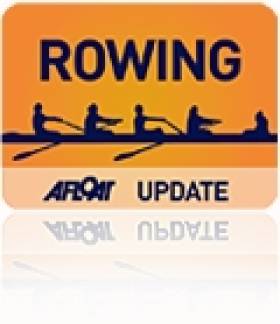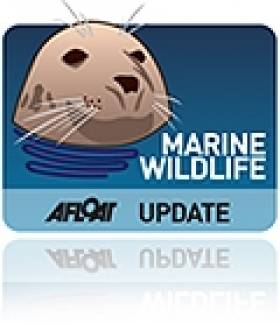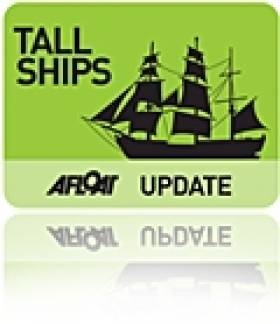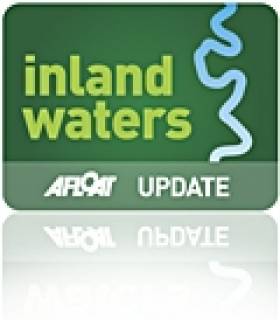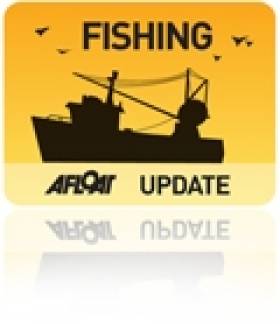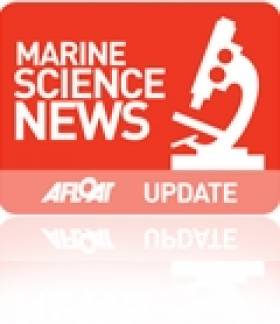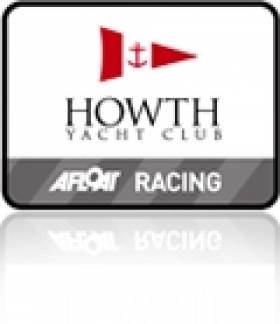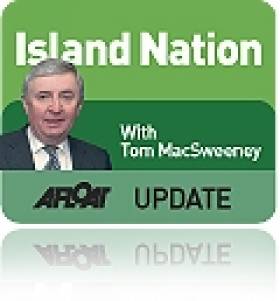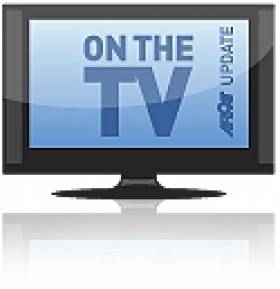Displaying items by tag: programme
Ireland Rowing Trials Programme Announced
#RowingIrelandProgramme: The trials process for Ireland crews will begin next month. Crews will be formed much earlier than in recent years and athletes who do not make the World Cup or World Championships squads will be facilitated.
There are four stages:
- An ID Trial at the National Rowing Centre in Cork, September 28th, 2013 which will feature on-the-water testing and will indentify a senior squad for World Cup Regattas and World Championships and development groups at senior, under-23 and junior level.
- Ergometer Tests over 2,000 metres on 23rd November (Limerick) and 30th November (Belfast). These are compulsory save on medical grounds or in exceptional circumstances
- Assessment over 5000m on Newry Canal for invited athletes on February 22nd and 23rd
- Final Selection of World Championships crews, March 22nd and 23rd at National Rowing Centre (junior crews to be formed and tested in regattas)
Athletes based abroad, and those with other valid reasons for not going through this process (including late-developing athletes) can be excepted.
IWDG to Host European Cetacean Conference in Galway This March
#MARINE WILDLIFE - The Irish Whale and Dolphin Group (IWDG) will host the 26th annual European Cetacean Society Conference in Galway on the weekend of 24-25 March this year.
The Galway Bay Hotel will be the site for the main conference sessions, while workshops will also be held at the Galway-Mayo Institute of Technology (GMIT).
This year's gathering is being held under the theme 'Communication: Information and Ideas Worth Sharing'. Participants will be exploring communication between marine mammals as well as between marine scientists, and between scientists and the public.
As Ireland's Wildlife reports, the conference "offers a offers a great opportunity to find out more about whales and dolphins, their conservation, the cetacean research being carried out in Europe and to meet the researchers who are working to uncover the mysteries of these most enigmatic of creatures."
Registration is now open for the two-day event. For full details of the conference programme, venues and booking information, visit the European Cetacean Society Conference micro site HERE.
Entry List Announced for Tall Ships Races 2012
#TALL SHIPS - Eighteen vessels are on the entry list for the 2012 Tall Ships Races which are set to conclude in Dublin Port next August.
The list is dominated by British entries, with all nine UK tall ships expected to sail the third and final leg from A Coruña in northern Spain to Dublin.
Tall ships from Russia, Poland, France, Ecuador, Bulgaria, Latvia, Estonia and Belgium will also be in the fray when Ireland's capital hosts the final port of call for the 2012 races, presented by Szczecin in Poland and organised by Sail Training International - a charity established to harness sail training to develop and educate young people regardless of nationality, culture, religion, gender or social background.
The first leg of the 2012 races kicks off in Saint-Malo, France on 7 July with ships racing to Lisbon in Portugal (till 21 July); Cádiz in southern Spain (21-28 July) and A Coruña (28 July-12 August) before the final leg.
Dublin will be hosting the Tall Ships Races for the first time since 1998. Earlier this year Eamonn O’Reilly, CEO of Dublin Port Company, said he was “delighted to welcome the Tall Ships Races to Dublin Port" in 2012.
Since the announcement the port has already played host to the British tall ship Tenacious and the Norwegian vessel S/S Statsraad Lehmkuhl.
From Thursday 23 to Sunday 26 August 2012 as many as 100 ships are expected to arrive in the port and Docklands area for an event that includes a four-day festival programme of music, food and fashion showcases, markets, street theatre, water sport and water-based activities.
The weekend will also feature activities unique to the races including a crew parade, prize-giving event and a parade of sail.
Are you looking to get involved in Dublin's hosting of the Tall Ships Races? Check out the following links:
Become a trainee www.dublintallships.ie/trainees/
Take part as a volunteer www.dublintallships.ie/volunteers/
For further information see www.dublintallships.ie or e-mail [email protected]
Entry List for the Tall Ships Races 2012:
Akela (Russia)
Black Diamond Of Durham (UK)
Dar Mlodziezy (Poland)
Etoile Polaire (France)
Guayas (Ecuador)
Johanna Lucretia (UK)
John Laing (UK)
Kaliakra (Bulgaria)
Lord Nelson (UK)
Maybe (UK)
Moosk (UK)
Pelican Of London (UK)
Pogoria (Poland)
Rona II (UK)
Spaniel (Latvia)
St Iv (Estonia)
Thermopylae Clipper (UK)
Tomidi (Belgium)
Waterways Ireland 2012 Sponsorship Programme Now Open
#INLAND WATERWAYS - Waterways Ireland has announced details of its sponsorship programme for 2012.
Under the scheme, the authority for Ireland's inland waterways provides funding and support to groups, associations, clubs or other appropriate bodies to assist with events that enhance the use of the waterways for recreational purposes.
The sponsorship programme cannot be used to fund or contribute towards capital projects such as acquiring or developing new or existing buildings or infrastructure, nor acquiring or maintaining equipment.
Applications are now being accepted for the 2012 programme, and any interested parties can apply by reviewing the guidelines for eligibility and downloading the application form from the Waterways Ireland website.
The closing date for receipt of completed applications is 13 December 2011 at 3pm. Incomplete or late applications will not be assessed.
For further details contact Damien McWeeney at 071 96 50622 or [email protected].
Wild Salmon Showing Signs of Adapting to Climate Change
New evidence is indicating that wild salmon are adapting to climate change by feeding in colder waters, The Irish Times reports.
According to salmon expert Dr Ken Whelan, wild salmon are now diving as far as 800m below the surface - normally the preserve of the sperm whale - to feed for periods of up to 24 hours during winter months.
They are also travelling closer to the polar ice fields, in response to the warming of the Atlantic Ocean.
The change in behaviour was noted at a salmon summit in France attended by more than 100 fishery managers and scientists from across Europe, which was convened to discuss the threat of climate change to wild salmon stocks at sea.
Plankton levels are particularly affected by the changing wind and ocean currents, said Dr Whelan of findings from the EU-funded Salsea programme, which he led.
“Surviving the first winter at sea seems to be the key challenge for these stocks, and the salmon in the northern states like Norway and Russia, seems to be less affected,” he said.
But the recent return of wild salmon to the Tolka in Dublin, as well as healthy numbers along other inland waterways, highlighted that the news was not all doom and gloom.
The Irish Times has more on the story HERE.
Scientists Set to Show Off in Salthill
Hundreds of experts will be showcasing their work in marine science, weather and astronomy in Galway next Friday 23 September, the Galway Advertiser reports.
The special family-oriented Sea2Sky event - organised by NUI Galway in tandem with the Marine Institute and Galway Atlantaquaria - aims to educate the public about the wonders around us, from Ireland's marine wildlife and habitats to the stars and solar system.
The two main venues at Galway Atlantaquaria and Leisureland in Salthill will host various scientific demonstrations on the day, while the promenade between the two will be lined with amateur astronomers and their telescopes.
One of the highlights is sure to be the chance to see the remote submarine used by scientists to explore hydrothermal vents in the north Atlantic this summer.
The full programme of events is abailable at www.sea2sky.ie.
Howth Yacht Club Launches 2011 Sailing Programme
Howth Yacht Club will launch its programme of open sailing events for 2011 at the club house tomorrow evening (Thursday 31 March).
In addition to running club sailing throughout the year, and both junior and adult sailing courses to get more involved in the sport, HYC will also be hosting more than 20 open events this year.
These are set to include local, provincial, national and international championships, which are hopes to attract visitors from all over Ireland and beyond.
For more details visit the Howth Yacht Club website at www.hyc.ie.
Marine is Back
It is a reminder which I hope that the media in general will note and that his tile of Marine will be used as often as agriculture is. The general media has been notorious, in my view, for disregarding the marine sector unless there is disaster, emergency or controversy involved.
The return of the title 'Marine' to a Government Department is, to put it bluntly, a kick-in-the-ass which civil servants needed. It was a betrayal of this island nation's heritage when those in charge of the former Department of Transport held a meeting which decided to remove the title marine from the Department's name, even though the then Minister had been assigned the role of Minister for Transport and Marine. The man in charge of that Department, Noel Dempsey, did not demonstrate a lot of interest in the marine, being more noted for trying to shut down the coastal radio stations at Valentia and Malin, where he was beaten off by public opposition, which also happened when he tried to remove 24-hour rescue helicopter service in the south-east and for his introduction of laws which criminalised fishermen.
Hopefully, the restoration of 'Marine' to a Department's name will be the harbinger of better things for the marine sphere.
I have heard some disappointment expressed that the marine is not a department on its own, but what the Fine Gael and subsequently Coalition Programme for Government agreed by Enda Kenny and Eamon Gilmore said was: "Marine responsibilities will be merged under one Department, for better co-ordination in policy delivery."
They have been, though some of the finer detail remains to be seen, such as will the ports be moved away from Transport, to where port companies and commercial interests originally campaigned to have them moved? And how will the split of marine tourism work between Agriculture and Marine and the separate tourism department? A similar issue may arise in regard to sailing and sport, but it seems to me a positive step that the disregard which Fianna Fáil and the Greens showed for the marine sector is being changed.
It was also right to end a separate department for defence. With a small army and navy, smaller than the marine sector, it was nonsense that it should have been a department of its own.
Let us therefore, hope for the future and take a positive view of the change as being for the better.
Programme for Government will Reinstate Marine Department
It maybe the second last item on the programme for government issued by Enda Kenny and Eamon Gilmore yesterday but the indications are good that the marine sector will see a reinstated Department of the Marine. the Fine Gael and Labour coalition say 'marine responsibilities will be merged under one Department, for better co-ordination in policy delivery'. Here is the relevant excerpt:
Coastal communities, fisheries & marine environment
We will negotiate the best possible deal for fishermen in the review of the Common Fisheries Policy.
We will support the development of sustainable aquaculture and fish farms by streamlining the licensing process and reducing associated bureaucracy.
Marine responsibilities will be merged under one Department, for better co-ordination in policy delivery. We will develop an integrated marine and coastal planning process in order to maximise the potential of Ireland's coastline in fishing, aquaculture, ocean energy and tourism.
A Sea Fisheries Sustainability Impact Assessment, based on consultation with all major stakeholders, will be brought before the Dáil annually before EU fisheries negotiations commence.
We will replace criminal sanctions system for minor fisheries offences with administrative sanction system to bring Ireland into line with other European jurisdictions. Safety at sea and decent working conditions must underpin the development of the fisheries sector. We will explore the provision of an emergency towing vessel for the Coastguard.
Clipper Race Doc Goes Global on UK television
Six hour-long episodes capture every emotional twist and turn, high and low of the 35,000-mile race, following the participants in the ten-month-long challenge of a lifetime. Many of the crew had never set foot on a boat before beginning their pre-race training. From their first rookie steps to becoming a highly skilled ocean racer, the series charts their progress as they deal with the immense power of the world's oceans and everything Mother Nature can throw at them.
Dramatic footage captures a man overboard in the middle of the south Atlantic, dismastings, the devastating loss of a yacht and the terrifying experience of a yacht being rolled in the near hurricane conditions in the remote waters of the north Pacific. These heart-stopping scenes combine with the euphoria of race victories, personal voyages of discovery and the cementing of friendships that will last a lifetime.
As the race draws to its final, nail-biting conclusion and the emotional homecoming to a hero's welcome, Against the Tide captures the reactions of the racers after the event, to discover exactly how this unforgettable experience has changed their lives forever.
The international TV series, created by an award winning UK production team, is being snapped up by broadcasters around the world, including the Discovery Channel. The programmes will premiere on Discovery's UK free-to-air channel QUEST in a peak mid-week slot from next Wednesday, 2 March at 9pm.
TV series Producer John Nolan says, "The Clipper Race is a remarkable human adventure played out on the high seas. Our team had unrestricted access to the crews to follow their incredible journey around the world. The series provides a unique insight into the roller coaster of emotions and experiences as novice sailors from all walks of life discover how they cope when Mother Nature throws everything she's got at them.
"We're delighted with the programmes and have received an enthusiastic reception from broadcasters such as Discovery Channel. It will be seen by millions of viewers around the world."
The biennial race was established in 1996 by legendary yachtsman Sir Robin Knox-Johnston, who became the first person to sail solo, non-stop, around the world more than 40 years ago. He is chairman of the race which is almost full for the next event starting this summer and is already signing up crew for 2013.
Sir Robin says, "There is huge demand for this unique adventure which gives people of all ages and walks of life the opportunity to experience the thrill of ocean racing, Clipper provides extensive training and safety is our number one priority. So when our crews and their professional skippers encounter the dramatic challenges of the world's oceans, they can call upon their training and numerous safety drills to respond quickly and effectively. Taking part in the Clipper Round the World Yacht Race is a great personal achievement of which they can be justly proud and the television series captures it perfectly."
Watch Against the Tide on QUEST (Freeview channel 38, Sky channel 154, BT Vision channel 38, Virgin Media channel 179) from Wednesday 2 March at 2100 GMT.
The series has been produced by North One Television, one of Europe's biggest and most successful independent media companies. It is recognised as a global producer of world class entertainment, factual, digital, sport and live event programming and has won scores of awards for its shows. It is part of the ALL3MEDIA group. www.northonetv.com


























